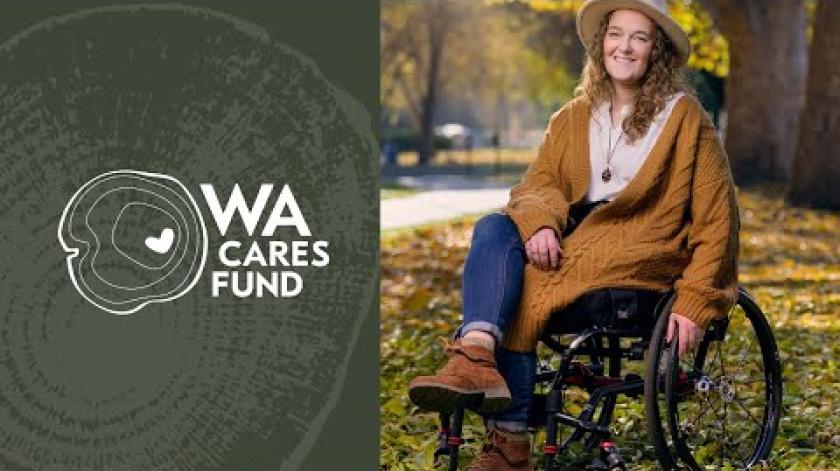Long before she needed long-term care, Dani was a full-time caregiver herself. She had spent most of her life caring for her disabled brother and sister, and she became a caregiver in college to earn extra money and because she was able to fit in work hours around her school schedule.
“Being a caregiver is a pretty grueling job,” Dani says. “It’s a lot of hands-on work. It can lead to physical strain on your body. It can lead to a lot of mental health exhaustion, too, because you’re expected to be there and be present.”
When she was 30, Dani went in for a routine medical procedure and came out of the operating room unable to walk. Her doctors still aren’t sure exactly what caused her injury. Now, Dani uses a wheelchair, and while she works full-time, she also needs assistance in her own life.
“I’d never really seen anyone my age need long-term care until it happened to me,” Dani says. “Life happens to all of us. At any point in time, you could experience a serious illness, an injury, or a traumatic event that causes you to access long-term care.”
As somebody who regularly relies on long-term care but is also employed, Dani doesn’t qualify for a program like Medicaid. She will, however, qualify for WA Cares benefits. It would make a huge difference because even with health insurance, she still has a lot of expenses that need to be paid.
“Since becoming disabled, I realized that there are a lot of things that aren’t covered by health insurance,” Dani says. “WA Cares is a very simple solution, where only a little bit comes out of your paycheck, and you get this benefit of $36,500 that you can use to do what you need.”
Dani sees the WA Cares Fund as one of the biggest steps Washington has ever taken, a game-changer for people whose long-term care needs fall through the gap in the U.S. care system. “WA Cares is probably the most hopeful program I’ve ever seen Washington provide people. I see it changing the future of long-term care.”
